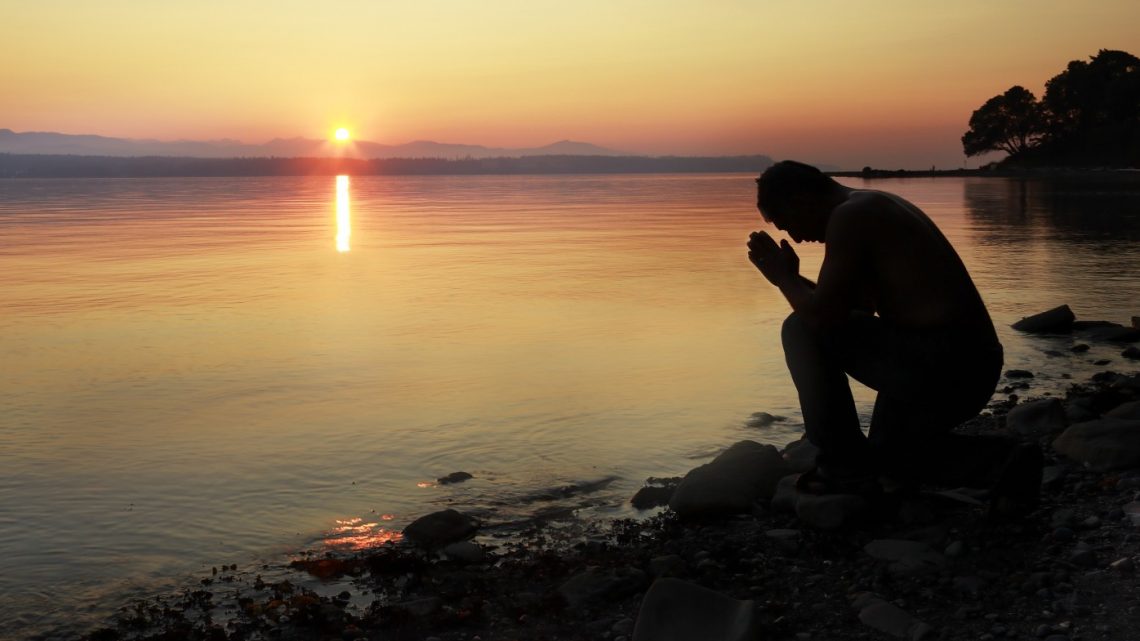Having abandoned Christian college because I perceived it as too worldly for me, my life now revolved around the principles promoted by that self-supporting institution.* I decided to make a pilgrimage there and get acquainted with the people. Perhaps they would let me join them in pursuing a perfect character.
It was a long journey. Every mile that passed increased my eagerness to see the New Jerusalem of my convictions. At last I drove up the wooded driveway.
Paradise restored! That’s what it seemed like. Simple, practical buildings way out in the country, far removed from the sinful city. Clear eyed, smiling people with firm handshakes welcoming me to lunch. Plain, hearty food skillfully prepared. Wholesome, earnest conversation. A vigorous afternoon hike on the wooded mountain trail.
“This is the place for me,” I concluded. “No foolishness. No worldliness. No compromises. These people really mean business about the straight testimony of inspired standards.”
To an earnest young Christian weary of the world’s allurements, this self supporting institution seemed the gateway to heaven, the paragon of primitive, practical godliness. Certainly, many people there were among the most sincere I have ever known. What I didn’t realize right away was that some were also the most guilt oppressed, legalistic people you could ever meet. Of course, none of that was apparent to me at the time.
Elusive sinlessness
I plunged into the program and expected to make rapid progress toward the sinlessness everyone said would qualify me for heaven. Nothing of the world could distract me. No television, no radio, no newspapers, no magazines, and no suppers.
Survival was a struggle. Mornings I hand-cranked the old John Deere tractor and plowed the fields. Or I helped fix the rust encrusted vehicles we drove, sawed firewood or built little houses for incoming families. All afternoon I sold Christian books and magazines up and down country roads and hollows. Then every evening and all weekend long I conducted Bible studies in surrounding towns.
After one year of uncompromising sacrifice in that spiritual boot camp, everyone regarded me as the strictest person there. If fact, they called me a fanatic. All I was doing, though, was taking exactly what they believed to its logical conclusion. I ruled my appetite with an iron will, yet my frequent fasting did nothing to satisfy my spiritual hunger. Even worse, I had to admit to myself that I still had sinfulness in my life. No major failures; all bad habits I knew of had been overcome, yet I had a painful sense of generally falling short of God’s ideal. Free-floating guilt, psychologists call it.
One Saturday night I finally came to terms with my misery. I was sitting in my attic room pondering Christ’s invitation: “Come unto Me, all you that labor and are heavy laden, and I will give you rest” (Matt. 11:28). I began thinking: “Rest . . . how sweet that sounds. If only I could enjoy real rest in Jesus.”
Suddenly a volcano inside erupted.
“God, what does it take! I’ve already given up everything You could possibly want. I’ve given up all fun, even desserts. I’ve forfeited my scholarships and my hope of being a pastor. I’ve given up my family and all my friends. I’m all alone here. My class at college is graduating this spring and I’m stuck here on this old farm where nobody loves me, nobody cares.”
Hot tears cascaded on my Bible.
“They call me a fanatic, Lord. But all I do is only what You want me to. I just study, work and pray—and still it’s not enough! I still feel guilty all day long!”
Convulsed with sobs, I cried: “God, what do You want? What will it take to have that perfect Christlike character? Why can’t you help me stop hurting Jesus and be ready to go to heaven!”
How long I spent sobbing on my knees, I don’t know. When I finally got up I was more determined than ever to overcome sin. Even if it killed me. I knew I couldn’t overcome in my own strength, of course, but in the power of the living Christ within me.
Emotionally exhausted, I crawled into my army cot and fell into a merciful sleep. The next day I fasted and prayed. I was already a frequent faster, but now I determined to deprive myself more often. Not to gain merit, I imagined, but to clear my mind for a deeper relationship with Jesus. When others were feasting on physical food I chose to feast by faith on the Bread of Life.
Thanksgiving day of 1973 stands out in memory. The cooks had prepared an abundant holiday dinner, which I considered a test of my spiritual commitment. While the others dined happily, I climbed the mountain behind the institution and fasted. I prayed for everyone by name that they would not overeat and defile their body temple.
I did my best to convince myself that I was having a better time fellowshipping with the Lord than if I had been indulging my appetite. The truth was that my growling stomach made me resent those who could eat their meal without guilt. Ironically, my fasting left me worse off spiritually than if I had simply enjoyed Thanksgiving dinner like everyone else.
Obviously, fasting was not my pathway to perfection. What else could I do to make my Christian experience more productive in achieving sinlessness?
I had no rest day nor night. It got worse.
(This is the third post of a five-part series of Martin Weber’s testimony, “My Tortured Conscience,” in which he describes his misguided quest for revival and reformation, which led him to quit his studies as a theology student and join an independent group of Adventists seeking sinless perfection. To read the first post, click here. For the next post, click here.)









